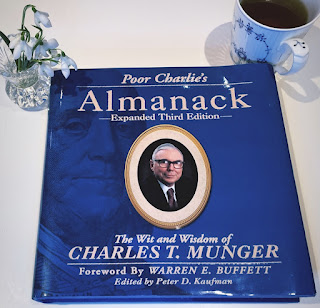Here’s What I Would Do If We’re Heading into A Recession
There’s a lot of headlines and talk about recession these days and you might have heard news that we are already in a recession while other experts say we aren’t. In the USA a nonprofit academic panel that has the task of identifying recessions - The National Bureau of Economic Research (NBER) - has not identified that we're in a recession.
 |
| Past recessions identified by NBER - click for large image |
I can’t say whether we’re heading into a recession or something else is coming up, but I can feel that my own patterns have changed recently, and my priorities aren’t the same. This has made me think about what I would do in case we do see further slowdown in the economy. I already know that my investing strategy is just perfect for this type of environment, but there are definitely some extra cautionary steps I would take. Here’s what I would do:
1. Buy Quality Stocks
Behind every stock is a business and I would go for quality businesses. Here's a watch-out though: When some people talk about "quality stock", they're talking about quality products or brands that they know. But brand or quality products doesn’t necessarily mean quality business. When I talk about quality stocks I mean that there's a well-run, healthy business behind the ticker. Though a strong brand has a very competitive advantage – also in a recession – the actions that management takes is key. I look for 3 numbers to identify management. Read about these numbers here.
2. Lots of Cash - Keeping Expenses Down
Because of inflation the cost of running a business has increased. Management must keep expenses low and if a business has high costs of running machines, high expense buildings or other expensive "capital expenditures", then the management can end up in a situation where the expenses are higher than the income or that the margin between expenses and income is very low. In many sectors companies are experiencing a slowdown in sales because the cost of living has gone up and people must choose carefully what they spend their money on. A company with very low expenses will be able to overcome a slowdown of sales and still be producing cash that they can reinvest in growth.
A lot of tech companies have low capital expenditures and some brands in the drinks and food category that can produce their products at a very low cost and because of the strong brand – sell the products at a more expensive price than non-brands in the same category.
3. Small Luxury Item
In the industry I’m working in we know the power of a “small luxury item”. In past recessions people have been allowing themselves a small item that's perceived as luxurious. It could be a nail polish, perfume or lipstick from a luxury brand, branded drinks products that are from a high quality perceived brand or it could be a toy from a popular brand that the kids with guarantee will be ecstatic about. It’s products that are perceived as quality but at a lower price point than in prosperous times.
4. Necessities
There are certain household items that we will need, and some large producers of these necessities might have a management that are strong on the 3 key numbers mentioned in section 1 "Buy quality stocks" and with low capital expenditures as mentioned in section 2 of this article. This would be a type of business that would be able to stay strong in a time where everything is uncertain. We will need toilet paper; toothpaste and because we’re saving money even on food, we might choose a dried food product like pasta or rice over fresh veggies.
5. A Bond Could Be an Opportunity
For the past many years investing in bonds has been a terrible option. Because of very low interest rates the bonds haven’t yielded a desirable return. But now things are starting to look interesting. The rates of return are increasing and, in the future, if there are opportunities for investing in high-return bonds, I might go with that option. I would say above 8% return.
I am cautious though because the United States already has an unfathomable high amount of debt and has been printing money – something that history has shown us is a very dangerous cocktail. The US treasury bond, which is considered a low-risk asset, will be risky if we, in the worst-case scenario, enter a hyper-inflationary environment. So I might look elsewhere for an asymmetrical risk-reward. Lots of big words – the main takeaway for you is: caution.
6. Not Panicking
If we’re heading into a recession and the stock market is taking a dive, I will not be panicking. I'm a long term investor and my time-horizon is not 1 year of 5 years but 20 years or longer.
I’ll be ready with my plan and I've done my homework so I can take smart decisions when quality businesses with low expenses and lots of cash are on sale because people are fearful of the short term future.
John Maynard Keynes, Ben Graham (both after they implemented value investing) and Warren Buffett have done extraordinarily well in recessions, and they’ve shared what exactly their strategy is. Model successful investors and understand their strategy is the antidote to panicking when the market is down. I will focus on my research and be ready with my cash to invest in some quality businesses.





Comments
Post a Comment